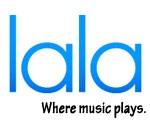 Attempting to seal a contentious advertising pact with Yahoo, Google has kindled up a persisting dispute with some advertisers that have raised fundamental questions about the fairness of its search advertising system.
Attempting to seal a contentious advertising pact with Yahoo, Google has kindled up a persisting dispute with some advertisers that have raised fundamental questions about the fairness of its search advertising system.
Both, Yahoo and Google have extended the Wednesday deadline for antitrust regulators to declare a decision on whether to block or give consent to the controversial search advertising deal to proceed, according to a source familiar with the talks.
At the core of the unhappiness is Google’s practice of elevating some adverts over others when it returns adverts to search queries, even though the advertisers referred to have committed through Google’s auction system to paying a lower “
cost per click
”. Google also blocks some ads altogether, preferring to show “white space” rather than low-yielding ads that it says damage its user experience.
So at this point, it remains to be seen whether an authoritative decision to block, or permit the deal with remedies as part of a settlement, will occur before the Thanksgiving holiday.
“Would it not be nice to get it resolved, one way or another, before Thanksgiving,” said the source.
The matter has come to the forefront with Google’s planned advertising pact with Yahoo, reached in June. Under the arrangement, which US antitrust regulators are likely to rule on in a matter of days, some ads shown alongside Yahoo search results in the US and Canada would be drawn from Google’s advertising system.
That means higher prices for advertisers, as Yahoo seeks to boost its earnings by choosing to show more profitable adverts supplied by its main rival, according to a complaint by the Association of National Advertisers, which represents many of the biggest US brand advertisers. And while Google claims its’ “quality scoring” system would compensate by generating better leads, “the [return] that advertisers receive is not guaranteed,” the ANA said in a letter asking the Department of Justice to block the transaction.
Eric Schmidt, chief executive of Google, is roundly dismissive of the attacks.
“The criticisms have not been very thoughtful,” he said in an interview with the Financial Times. “There has been a lack of understanding of the details of the auction.”
Earlier, a time-limit had been set for Oct. 22 for antitrust regulators to make a decision on whether to challenge the deal, or allow it to proceed. That revised time-frame has been extended from Oct. 8, in order to give regulators more time to review the search advertising agreement.
Google is now looking for reinforcement from individual advertisers to get its search partnership with Yahoo through the Justice Department. Google lawyers are now communicating with users of AdWords to get them on the record in support of the deal.
Google’s refutation of the criticism is characteristic of how Google reacts in such disputes, according to some observers. “The Google institutional culture is that they really do believe they are right, and what they are doing is fair, it is part of [Don’t be evil],” said Rebecca Arbogast, an analyst at Stifel Nicolaus in Washington. Yet because of the absence of transparency in its system, outsiders have to take Google’s good faith on trust.
To combat Congress’ inquiry into the monopoly implications that surround Google’s proposed advertising pact to serve ads to low earning search terms on Yahoo’s pages, Google needs all the friends it can get.
Microsoft has already influenced The Association of National Advertisers and the International Association of Advertisers against the deal, and now Google is going directly to the users of its advertising to rally support from the people who will be most affected by it.
An advertiser who spends about $100,000 a month on Google search terms received a phone call from Google looking for his vote, according to TechCrunch:
“Hi Darren my name is Donald Burke. I’m calling on behalf of Google to talk with Adwords advertisers about the new proposed Google/Yahoo Advertising Agreement. If you have a couple of minutes to talk with me, my number is…Thanks very much. Take care.”
The risk for Google is that, even if Federal regulators decide not to trail this issue now, merely opening the door to deeper scrutiny has put it on antitrust authorities’ radar screen.
“What is likely is that [DoJ lawyers] will educate themselves,” said Ms Arbogast. “The next time something comes up – Google buys something, or someone comes forward with a complaint – they will be ready.”
But advertisers have ever since voiced their opposition to the deal, citing a concerns that prices could possibly rise and that Yahoo may one day opt to exit the search advertising business altogether. Those concerns are similar to those voiced by federal antitrust regulators, sources previously have said.
The majority of legal experts, meanwhile, agree that other questions are expected to play a bigger part in the DoJ’s thinking as it decides whether to clear the Google/Yahoo partnership. “Keeping Yahoo in the market is the main issue here,” said Norman Hawker, a professor at Western Michigan University.
If the partnership gives Yahoo access to more profitable advertising supplied by Google, it will have a strong incentive over time to take an increasing share of adverts from its main rival, creating a slippery slope where its in-house advertising system becomes increasingly uncompetitive.
Although the companies are once again extending the deadline, such a move is somewhat common when the parties are hashing over things. One source had previously noted that companies will often grant regulators as much time as they need to review a deal, rather than forcing their hand, if it appears their decision will be unfavorable to the companies.


